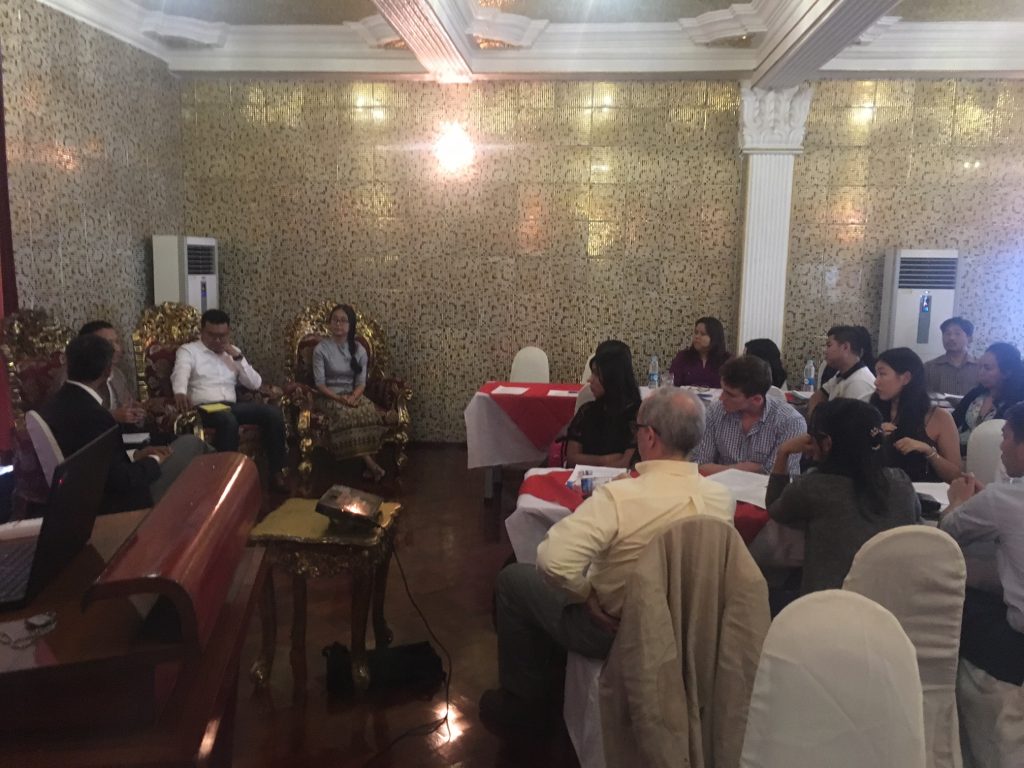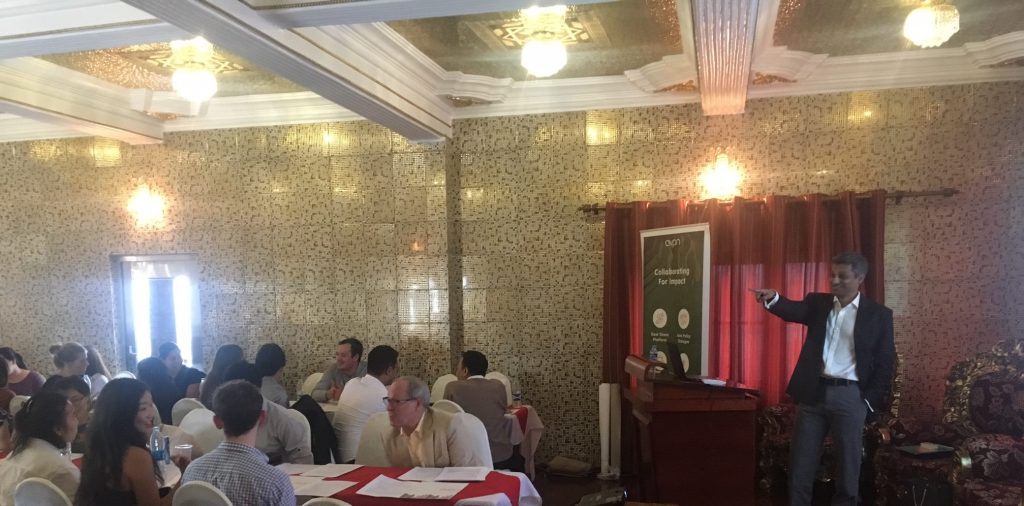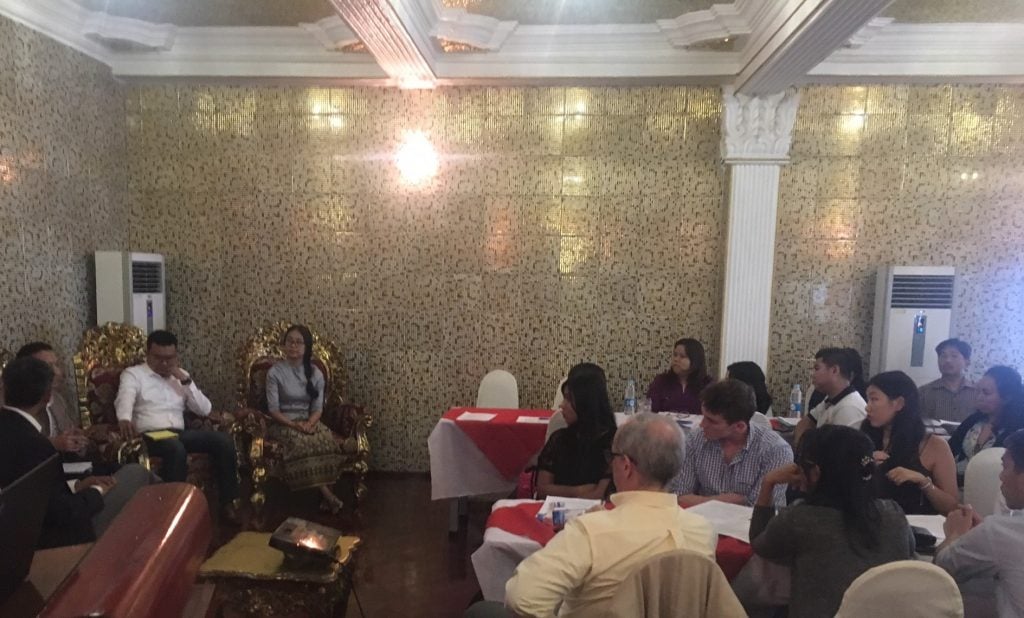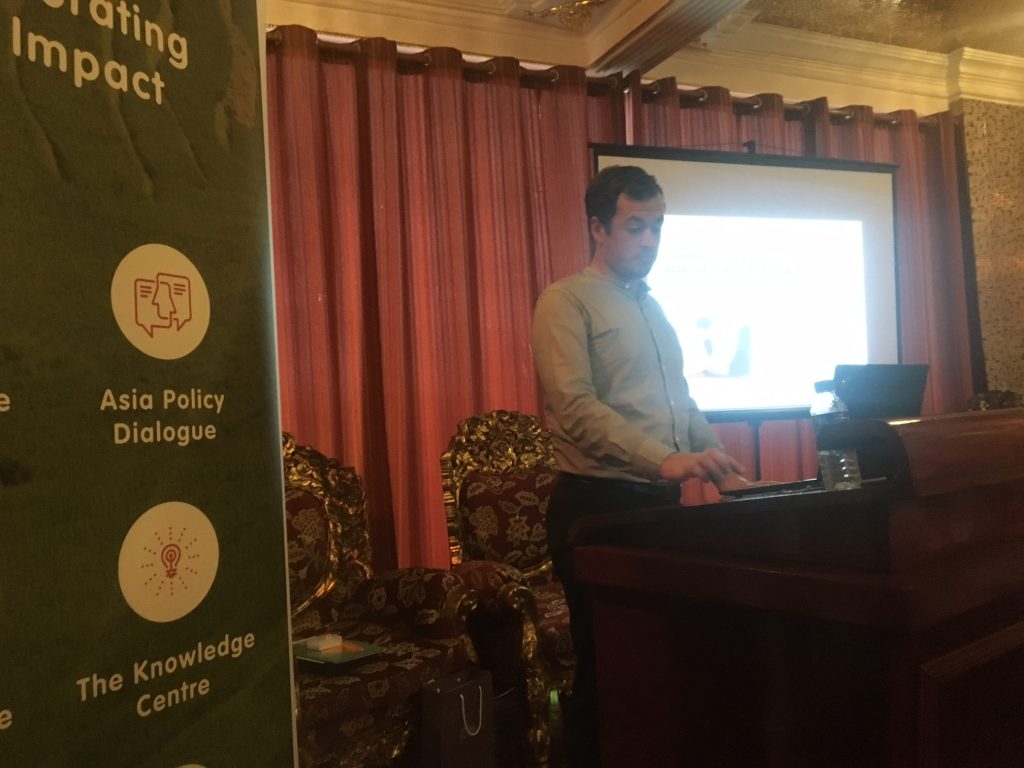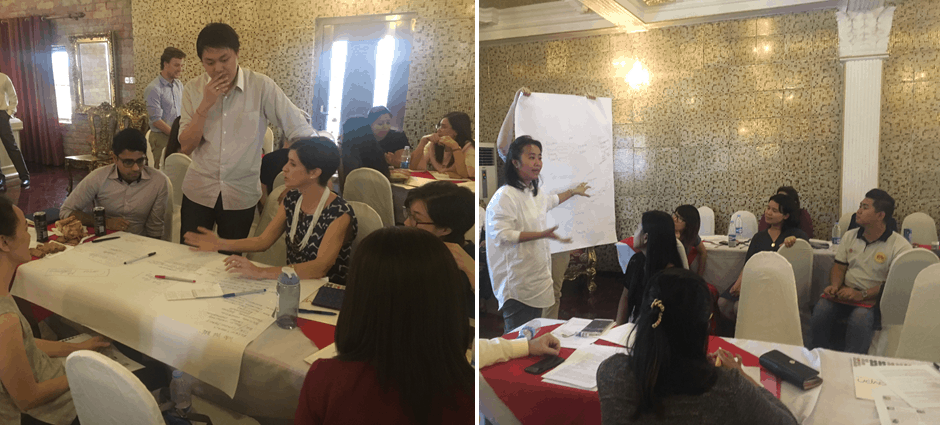“Who has more human capital: all the scientists in a research university (including law and medicine professors) or a group of entrepreneurs, carpenters, hunters and farmers?”
It was with this and other provocative questions that Sriven Naidu, Director of Programme Development & Partnerships, (Master of Tri-Sector Collaboration), Singapore Management University, led a group of 50 participants into a lively discussion on the multi-faceted nature of human capital. Questions relating to the human capital gaps in Myanmar, the strengths and promising initiatives that already exist, and the possible next steps were the main topics raised during the 4-hour discussion. The AVPN Myanmar Speakers Series session on 2 August 2017 was graciously hosted by the American University in Myanmar and opened by its Rector, Professor Craig Klafter.
Addressing the Human Capital Gaps in Myanmar
With entrepreneurial panellists including Tim Aye Hardy, director of the MyMe project and member of the education sector coordination committee, Aung Pye Tun, Founder of the KML group and coach/blogger, and Emily De, National Education Programme Officer with UNESCO and overseer of the Centre of Excellence for Business Skills Development, the tone was quickly set: While the Government is making good steps (particularly towards reforming primary education), there is great merit in well-intentioned ground-up initiatives to accelerate the development of a new generation of human talent. There is a lot that the private sector and other organisations can do right now. Whoever feels they are in a position to take initiative, can and should.
In his presentation, Felix Haas (an independent consultant working on private sector development) underlined this point. There is little to be gained by discussing whether the human capital gap is a private sector development issue, education sector issue or labour market issue. It is an issue for all sectors, and all sectors should collaborate, especially on quick wins. Simple first steps, Felix suggested, included collecting better data, mapping out in which sectors Myanmar is likely to grow and what type of human capital development will be required to enable this growth.
Promising Players in the Ecosystem – and Their Potential
Amongst the case studies discussed was that of the Centre of Excellence for Business Skills Development, which is jointly supported by PepsiCo, the Myanmar Ministry of Education and UNESCO. This is the first public-private partnership of its kind in Myanmar to provide targeted training in business and provide skills, career counselling and networking opportunities for youths and the unemployed. The Centre demonstrated a viable model on how the business and education sectors in Myanmar can collaborate to deliver relevant skills training.
Next Steps
During the second half of the session, participants formed cross-sector groups and brainstormed collaborations. The diversity of participants (who hailed from the private sector, NGOs, educational institutions and youth groups) ensured rich exchanges and innovative suggestions.
The day demonstrated that with a diverse set of people in the room and good facilitation, lots of possibilities for high-impact collaborations can be uncovered.
***
The AVPN Myanmar Speakers Series is held every quarter with the aim of spurring discussion and exploring regional trends to maximise social impact. Contact us at [email protected] to be placed on our mailing list.

















